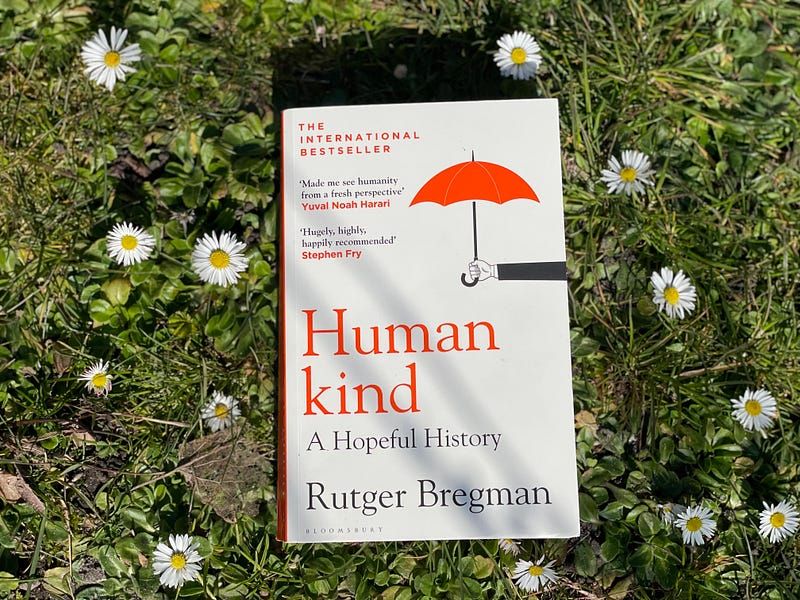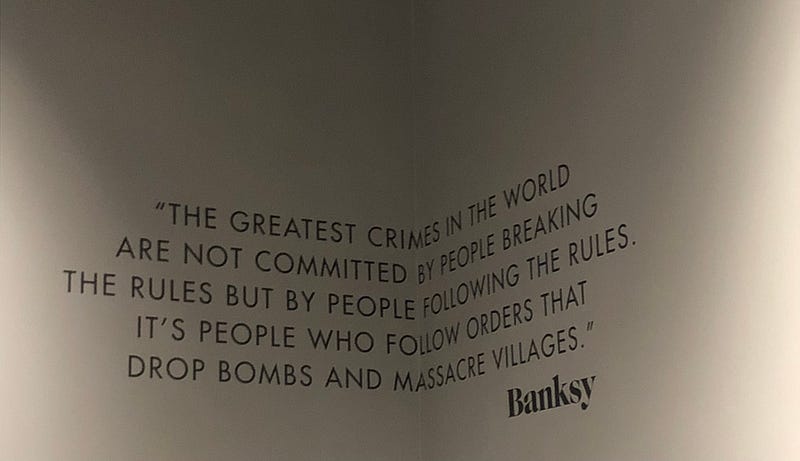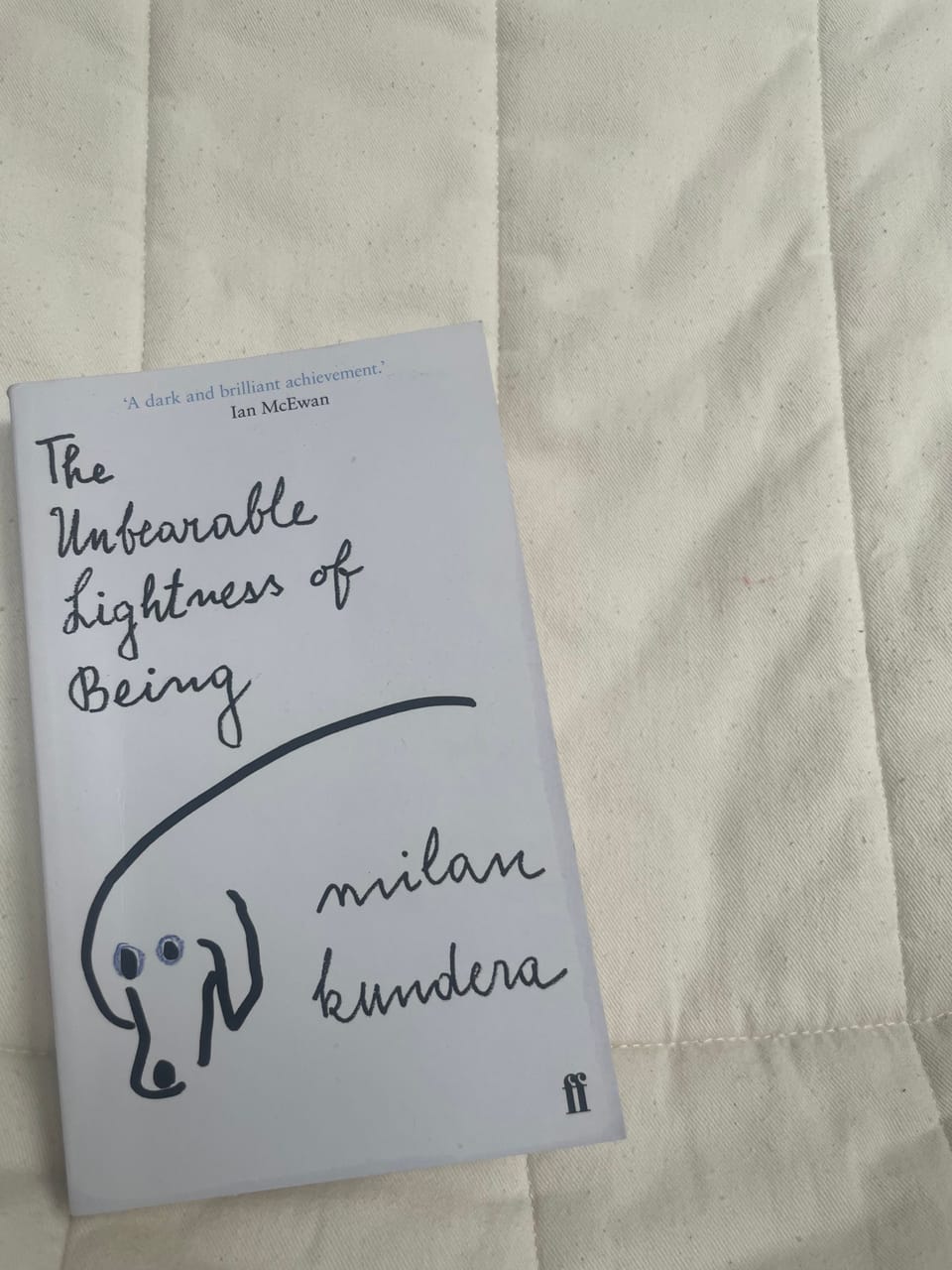How To Restore Your Faith in Humanity by Reading a Book?
Take a look at this book review about “Humankind — A Hopeful History” by Rutger Bregman. This book is a powerful reminder that humans are…

Take a look at this book review about “Humankind — A Hopeful History” by Rutger Bregman. This book is a powerful reminder that humans are kind and generous creatures.
The news is filled with drama and how people are evil. Would you like to read a book about how nice and kind we are as humans? My rather long book review will guide you on what to expect from this book. Here, I will briefly summarize the chapters I liked the most.
Powerful Start
The prologue made me question all the action movies I’ve seen. Why? Bregman comes up with fascinating and still little-known research. I know. You know. We all know that movies do not capture the scenes of how chaos reigns. Yet, we all have an idea of what will happen if war arises. Bregman is here to help us see the war differently. People do not relinquish their lives, dreams, and hopes in war. They fight. Some fight on the front against other human beings with weapons, and others fight to maintain everyday life with a positive attitude.
Lord of the Lies
What was your gut feeling after reading the book Lord of the Flies?
Are you interested to find out what would happen in real life? If yes, I have good news for you. Bregman is here to tell you the real Lord of the Flies story. Believe it or not, real boys were kinder than their fictional counterparts. I wish someone had made a movie of that version. So, if anyone is looking for a blockbuster idea, feel free to get inspired by this heartwarming story — more info in the book.
Homo puppy
Being nice to others is the only superpower people can have. We should reward each other for being kind. The reason is simple. Any behaviour is contagious. Take a look at how Machiavellism works. We should do the opposite: trust each other and don’t wear a poker face. Fun fact, blushing is a unique reaction that only humans do. I must write about the fascinating research on silver foxes. You can read about the experiment here. We, humans, are like dogs. How? Evolutionary psychologists are here to help us out again. Look at the skull of the Homo Neanderthals and the Homo Sapiens Sapiens. What do you see? What is the difference that scientists have found? How have we changed over time? Are we homo puppies? Why don’t you find out by reading the book?
Are we savage or brutal people in progress?
Please don’t rush to answer. Colonel Samuel Marshall has done revolutionary research in the world of historical scholarship. He interviewed soldiers after a battle in Japan. Despite being outnumbered, they nearly managed to break through American lines. What happened? Soldiers wouldn’t shoot. Marshall continued to interview a group of servicemen in the Pacific and Europe. He discovered that only 15–20 percent of them fired their weapons. This man became one of the most respected historians of his generation. If you are curious and want to know more about the why’s, you will probably find all the answers in that captivating chapter.

Shame is not a dead end
It was an exciting chapter about why shaming is good if we look at the big picture. Friendly people try not to shame others, but this goodwill actually breeds shameless sociopaths. The last thing that humanity needs is more psychopaths with power.
Future of work
“Managing is bullshit. Just let people do their job.”
- Jos de Blok
Jos de Blok also said that motivating seems patronizing, and I absolutely agree with him. There is a difference between motivating and encouraging. To encourage someone, you need to trust that person.
It is not new that a paycheck is insufficient for human beings to do their best at work. We all know, or we can all recognize, what motivates us.
We, humans, can’t do great work without intrinsic motivation. We waste lots of ambition and energy to do things that pay our bills. Money is not everything, and sometimes bonuses kill creativity. When we are not able to do things that we like to do during office hours, we do them in our free time. Everyone has a hobby. The lucky ones make a living from their hobby or interest, for example, I love to help people thrive.
What I love most is seeing the spark in the eyes of people who thought they couldn’t do something and did it anyway. Children often do that because they are curious, brave, and, most importantly, honest.
Do we need managers, or can people motivate themselves? Take Zobrist’s philosophy as an example: if you treat employees as responsible and reliable, they will be. Trust your employees like Buurtzorg and Favi, and you will succeed. In the right workplace, everyone wins when we can do what we love. Trust is everything we need to flourish in the workplace.
“The opposite of play is depression.”
- Brian Sutton-Smith.
Kids have less time to play freely nowadays. A recent poll among twelve thousand parents in ten countries revealed that prison inmates spend more time outdoors than most kids.”* That is more than sad. That is outrageous. No wonder alternative schooling is popular among parents who see this as a problem. There is plenty of evidence that these schools work well. Agora, Summerhill School, Sudbury Valley School, and the list could go on. Most educational systems are not as child-centric as they should be. I’m so grateful that this book covered the importance of alternative schools.
What else?
If you read the book, you will find out more about how non-complementary prisons in Norway are doing, what real democracy looks like, why your friends make you smarter, how Zimbardo manipulated his (in)famous experiment, a powerful story about the Danish resistance in the Second World War and many more.
In the end, I want to share with you one rule I picked from the ten rules to live by from Rutger Bregman’s list.
“Temper your empathy; train your compassion.”
I chose this because, at first, I thought this was crazy. Why temper my empathy? It helps people, and it helps me. It turns out that empathy is exhausting based on the brain monitor because it activates different areas in the brain. Unlike empathy, compassion energizes the body, which helps us take action. I need to practice being compassionate more. I admit it, sometimes it’s easier to feel with others, just be there and listen, but if you want to turn things around, you have to take action. That’s how being compassionate is far better than being empathetic.
*John Bingham, ‘British Children among Most Housebound in World,’ Daily Telegraph (22 March 2016)



